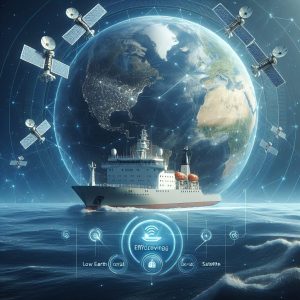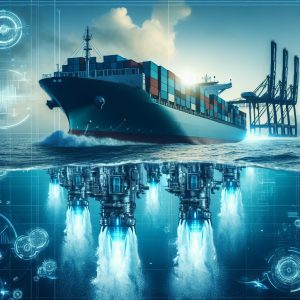The Green Innovation Transforming the Maritime Sector
In a world where sustainability has become a pressing need, the maritime industry is constantly seeking innovations that not only improve operational efficiency but also minimize environmental impact.
One of the emerging technologies that has captured attention is HydraGENTM, developed by the company dynaCERT. Initially conceived to optimize fuel consumption, this technology has also achieved a significant reduction in emissions, positioning itself as a key advancement for port operators and the industry as a whole.
The Power of HydraGENTM Technology
The fundamental principle of HydraGENTM is simple yet powerful: generating hydrogen on board efficiently to enhance the combustion of diesel engines.
- Reducing CO2 emissions by up to 20%
- Decreasing harmful pollutants like NOx
- Improving operational efficiency
According to Kevin Unrath, dynaCERT’s Director of Operations, the primary goal was clear: fuel savings. However, an additional advantage emerged from this combustion improvement: the reduction of polluting emissions. This dual gain translates into lower operating costs and a significant contribution to sustainability.
Environmental Impact of HydraGENTM in Maritime Sustainability
The technology has proven to be an effective solution to one of the maritime industry’s biggest environmental challenges: carbon emissions. Data provided by dynaCERT shows that the implementation of this technology can lead to a reduction of up to 20% in CO2 emissions from diesel engines.
This reduction not only contributes to the planet’s sustainability but also allows port and maritime transport companies to enhance their reputation and comply with international regulations.
Economic Benefits for Port Operators
Beyond the environmental advantages, HydraGENTM offers significant economic benefits for port operators. Thanks to optimized fuel consumption, companies can experience a considerable decrease in their operating costs. This saving can be redirected towards critical areas such as infrastructure improvement or investment in advanced technology.
Job Opportunities and the Future of the Maritime Sector
The adoption of advanced technologies like HydraGENTM also opens up new job opportunities in the maritime sector. Companies need skilled personnel to install, maintain, and optimize these systems, resulting in the creation of specialized jobs.
Kevin Unrath emphasized the importance of training a new generation of professionals who understand and can apply these innovations in their daily work. This is especially relevant in a context where both technical knowledge and the ability to adapt to new technologies are valued.
The future of the maritime sector holds promise for those who can adapt and lead with vision in the transition to more sustainable operations.
Relevance of HydraGENTM for WishToSail.com Readers
The HydraGENTM technology is relevant to WishToSail.com readers for several reasons. Firstly, it offers a unique opportunity for marine professionals to improve their operational efficiency, reduce costs, and better adapt to environmental regulations.
Secondly, for maritime investors, it provides an investment option in sustainable technologies with significant return potential, supported by a growing global demand for greener operations.
Lastly, for nautical enthusiasts, the adoption of technologies that enhance efficiency and reduce emissions can translate into a more conscious enjoyment of the sea, knowing that recreational activities contribute less to environmental degradation.
Furthermore, knowledge about these technologies can be a competitive advantage for those seeking to work or invest in the sector.
Conclusion
HydraGENTM from dynaCERT not only revolutionizes fuel consumption efficiency but also sets a new standard for sustainability in the maritime sector. This innovation is destined to be one of the cornerstones of the industry’s future, offering tangible benefits both economically and environmentally.






